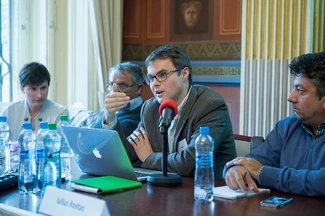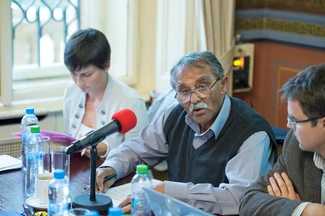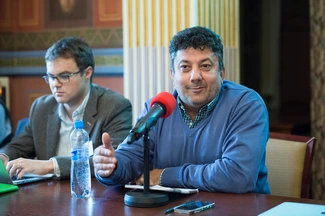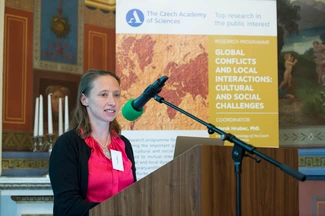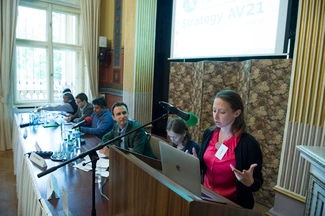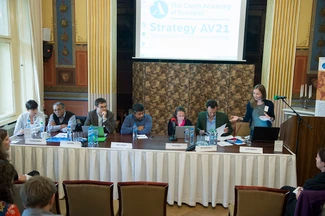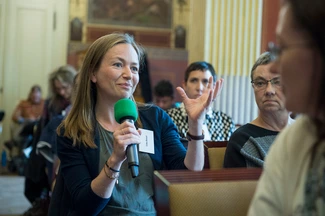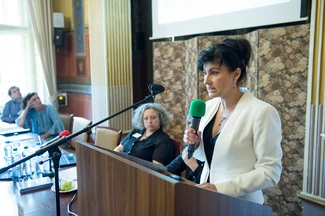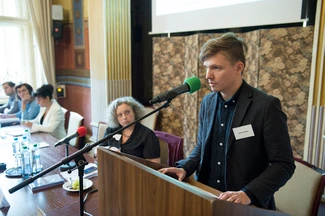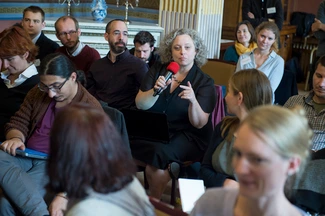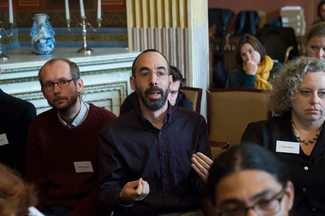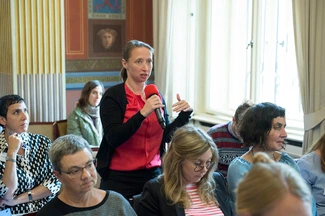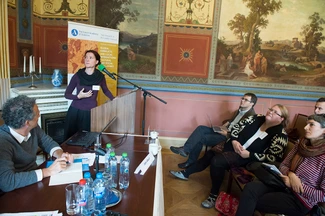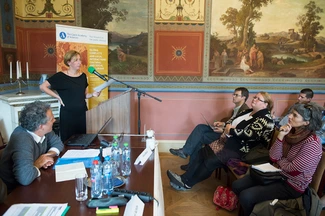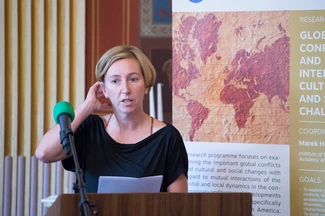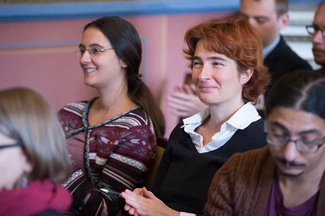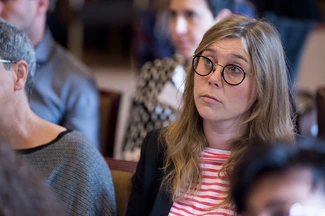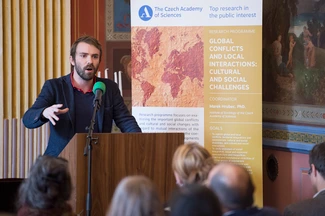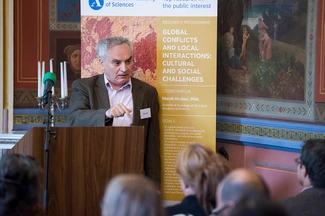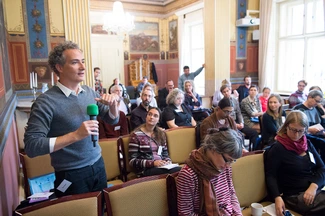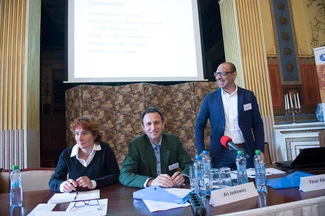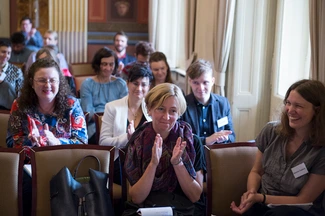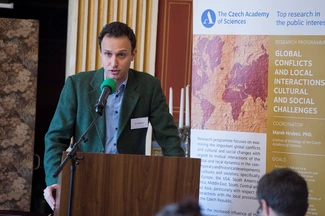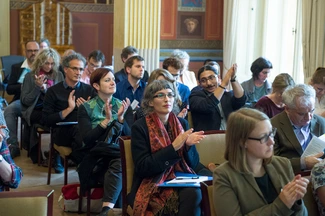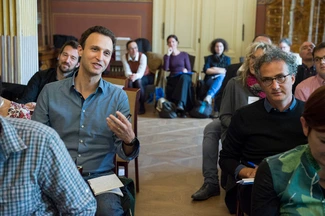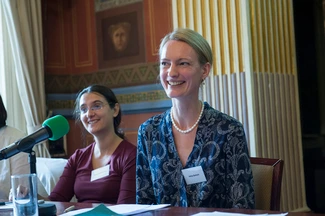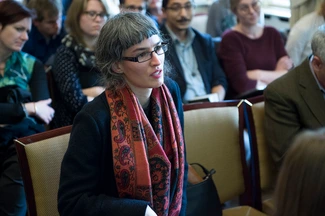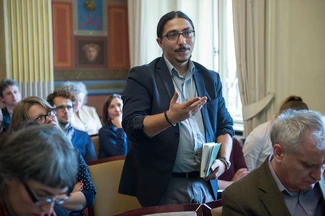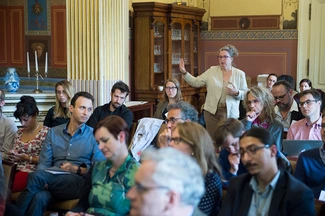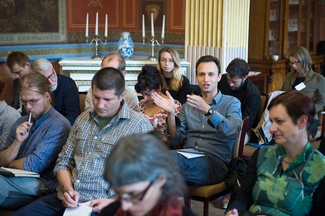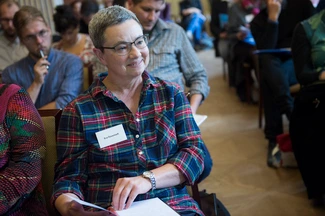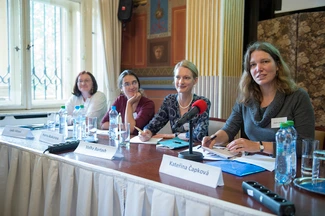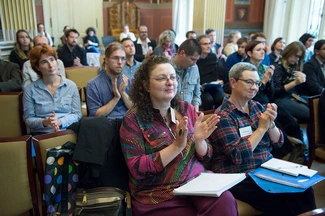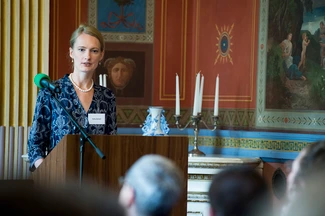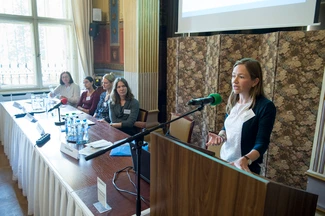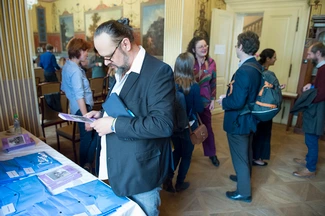Tracing the Legacies of the Roma Genocide. Families as Transmitters of Experience and Memory
International Conference
20-21 September 2017
Organizers:
Celia Donert (University of Liverpool)
Eve Rosenhaft (University of Liverpool)
Kateřina Čapková (Institute of Contemporary History)
Helena Sadílková (Faculty of Arts, Charles University)
The conference is a joint event bringing together two recent academic initiatives focused on researching Roma and Sinti history and supporting new approaches in the field: the Prague Forum for Romani Histories and the Research Network on 'Legacies of Roma Genocide in Europe since 1945', funded by the Arts & Humanities Research Council (AHRC, United Kingdom). Both initiatives aim to promote debate on the history of the Roma as part of European history and contemporary European society.
Understanding the genocide of Roma during the Second World War seems crucial to understanding the post-war history of Roma families and communities across Europe. At least 130,000 Roma were killed as a direct result of the racial policies of the German state, its allies, and other European states between 1933 and 1945. Some activists and scholars claim that as many as half a million Roma were killed. But while the mechanisms and scope of the Roma Holocaust are now partially understood, the legacies of mass murder, ghettoization, sterilization, and slave labor for first-, second-, and third-generation survivors are still unknown. It seems likely, however, that understanding the trauma of the mid-twentieth century genocide, as well as its contested recognition by majority societies, is of paramount importance for understanding the persistent discrimination against European Roma today.
Accordingly, the purpose of the conference is to map current research and guide an evolving research agenda that explores the ways in which past experiences and memories of persecution and violence have influenced family histories, political and social identities, and state-society relations among Roma in different parts of Europe since 1945. Such research will necessarily have a broad geographical focus, going beyond more familiar sites of remembrance such as the Auschwitz Gypsy camp to consider issues such as the legacies of the wartime deportation of Romanian Roma to Transnistria. We also welcome critical, longer-term approaches to periodization that might shed light on the specificity (or otherwise) of the events that took place between the mid-1930s and 1945. In doing so, we hope to promote much-needed comparative and transnational perspectives on Roma history in post-war Europe, and also to connect scholarship in the field of Roma studies to broader debates about the legacies of genocide in contemporary European history.
